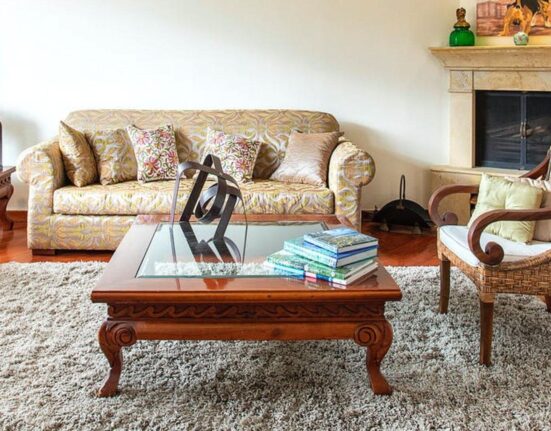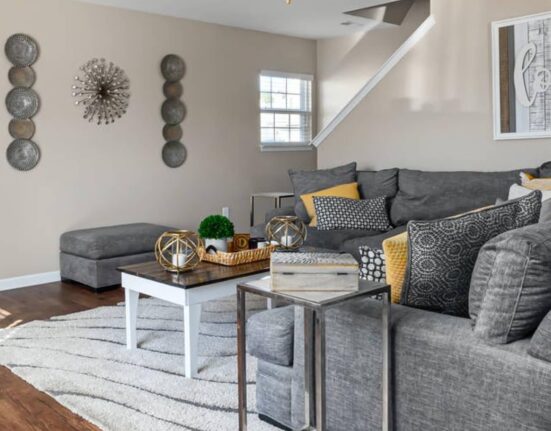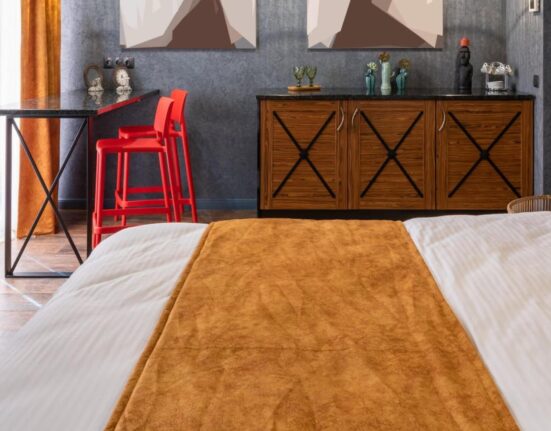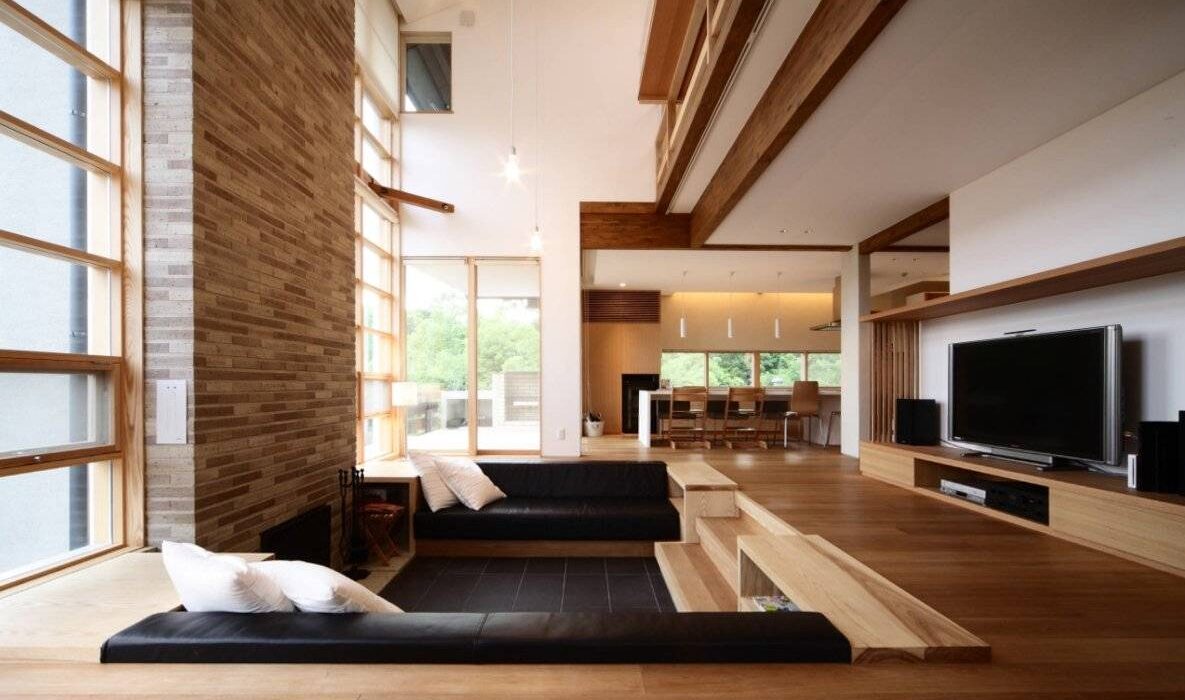A sunken living room isn’t just a trend that has come and gone—it’s a classic design feature that has stood the test of time. This unique style emerged in the mid-20th century, capturing the imagination of architects and homeowners alike. Its distinct aesthetic and practical benefits have allowed it to maintain popularity over the years. In this article, we’ll explore everything there is to know about sunken living rooms: their history, design advantages, and how they can enhance any modern home.
What Is a Sunken Living Room?
A sunken living room is a space set below the house’s main floor level. Instead of walking into a room that’s level with the rest of the house, you step down into a cozy, enclosed area. This slight drop in floor level creates a sense of intimacy and separation without needing walls or partitions.
Key Features of a Sunken Living Room:
- A recessed area that’s typically one to two steps below the main floor
- Built-in seating or versatile furniture arrangements
- Emphasis on comfort and conversation
- Open layouts that maintain the flow of the home
The Origins of the Sunken Living Room
The concept of a sunken living room dates back to the 1950s and 1960s. It gained widespread attention in the United States when modernist architects began experimenting with open floor plans. One of the most famous examples is the “conversation pit” in Eero Saarinen’s Miller House, completed in 1957. This innovative design encouraged social interaction and created a warm, inviting environment.
The idea of a sunken space for gathering caught on quickly, becoming a popular feature in mid-century homes. These spaces became synonymous with chic, sophisticated living, making a subtle but bold statement that reflected the era’s adventurous approach to architecture and design.
Why Choose a Sunken Living Room?
1. Enhanced Visual Appeal
A sunken living room adds depth and interest to a space. The contrast between the floor levels creates a striking focal point that catches the eye. Even if the rest of the home features a straightforward design, a sunken living room brings an element of surprise and architectural flair.
2. Defined Spaces in an Open Layout
Open floor plans can sometimes feel too expansive or undefined. By incorporating a sunken living room, you can create a distinct living area that feels separate while maintaining the openness of the layout. This subtle division is perfect for modern homes that want to blend spaces without using walls.
3. A Cozy Atmosphere
There’s something inherently cosy about stepping down into a space. A sunken living room feels snug and welcoming as if it’s enveloping you in comfort. The lower level can make the ceiling feel higher and the space more expansive, adding to the sense of relaxation.
4. Improved Acoustics
The design of a sunken living room can also improve acoustics. The lowered area helps contain sound, reducing echo and creating a better environment for conversations, watching TV, or listening to music.
Popular Sunken Living Room Designs
Mid-Century Modern
The mid-century modern design embraces clean lines, minimalism, and functionality. The sunken living room was a hallmark of this style, often featuring built-in furniture and understated colour palettes. These spaces typically emphasized natural materials like wood and stone, with large windows to let in ample light.
Modern Minimalist
For those who love a sleek, simple look, a modern minimalist sunken living room is the way to go. These spaces usually boast neutral tones, such as whites and grays, with low-profile and unobtrusive furniture. Add a few pops of color with pillows or artwork for visual interest.
Bohemian and Eclectic
A sunken living room is perfect for homeowners who prefer a more eclectic, bohemian vibe. Layering the area with textured rugs, throw pillows, and unique seating arrangements creates a warm and lived-in inviting space. Incorporating plants, lanterns, and global-inspired décor can further enhance this look.
Rustic Chic
Pairing a sunken living room with a rustic design is a match made in heaven. Imagine entering a room with exposed wooden beams, a stone fireplace, and soft, cozy furnishings. This blend of modern architecture and traditional elements offers a timeless, fresh and comforting aesthetic.
Designing Your Own Sunken Living Room
If you’re considering adding a sunken living room to your home, there are several factors to keep in mind:
Planning and Layout
First, consider the space size and how deep you want the sunken area to be. One to two steps is standard, but deeper recesses can create a more dramatic effect. Ensure that the layout complements the rest of your home and promotes natural traffic flow.
Seating and Comfort
Choose seating that suits the space. Built-in seating can make the sunken living room look seamless and stylish, while modular furniture allows for more flexibility. Comfortable sofas and chairs arranged in a semi-circle are great for encouraging conversation.
Flooring and Materials
Opt for materials that blend well with the rest of the home while highlighting the unique character of the sunken living room. Hardwood, stone, or even plush carpeting can make the space feel more inviting. Rugs can also define the space and add a pop of color or texture.
Pros and Cons of a Sunken Living Room
Like any design choice, there are pros and cons to consider when deciding if a sunken living room is right for your home.
Pros:
- Unique aesthetic: Adds architectural interest and a focal point to your home.
- Cozy atmosphere: Creates a warm, welcoming space ideal for gatherings.
- Space definition: Helps delineate different areas in an open floor plan.
- Improved acoustics: Enhances sound quality for conversation and media.
Cons:
- Potential safety concerns: The steps can be a tripping hazard, especially for children and the elderly.
- Accessibility issues: Not ideal for those with mobility challenges.
- Design limitations: Not every home layout can accommodate a sunken living room without major renovations.
Table: Comparison of Flooring Options for Sunken Living Rooms
| Flooring Type | Pros | Cons |
|---|---|---|
| Hardwood | Classic look, durable | Can be expensive, requires upkeep |
| Stone | Natural and elegant | Can feel cold, may need underfloor heating |
| Plush Carpeting | Warm, comfortable | Can stain easily, may wear over time |
| Tile | Easy to clean, durable | Can be slippery when wet, feels hard underfoot |
| Laminate | Affordable, easy to install | Less durable than hardwood or stone |
Tips for Decorating a Sunken Living Room
Decorating a sunken living room is a fun opportunity to showcase your personal style. Here are some tips to keep in mind:
- Lighting: Use recessed or pendant lights to brighten the area and create a welcoming ambience. Natural light is always a plus, so maximize windows if possible.
- Layered Textures: Rugs, throw blankets, and cushions can make the space feel cozier and more inviting.
- Artwork: Choose wall art that draws the eye downward into the living room, making it a true focal point of the home.
- Plants: Add greenery for a touch of nature and freshness.
- Statement Furniture: Opt for pieces that align with the room’s aesthetic but also make a bold statement.
Safety Considerations
While the design of a sunken living room is appealing, it’s important to think about safety. Make sure the steps leading down into the space are well-lit and have non-slip treads. For homes with young children or elderly family members, consider adding a short railing or installing soft corner guards on the furniture.
The Future of Sunken Living Rooms
With the resurgence of mid-century modern and retro designs, sunken living rooms are making a comeback. Today’s homeowners appreciate the blend of open layouts and defined spaces that sunken living areas offer. As we continue to prioritize comfort and versatility in home design, it’s likely that the sunken living room will remain a beloved feature in many homes.
Conclusion
A sunken living room is more than just an architectural choice—it’s a statement. It provides a sense of coziness and sophistication that few other design elements can match. Whether you’re drawn to the sleek lines of a mid-century modern space or the eclectic charm of a bohemian retreat, a sunken living room style will suit your home. With careful planning and attention to detail, you can create a space that looks incredible and feels like the heart of your home.








